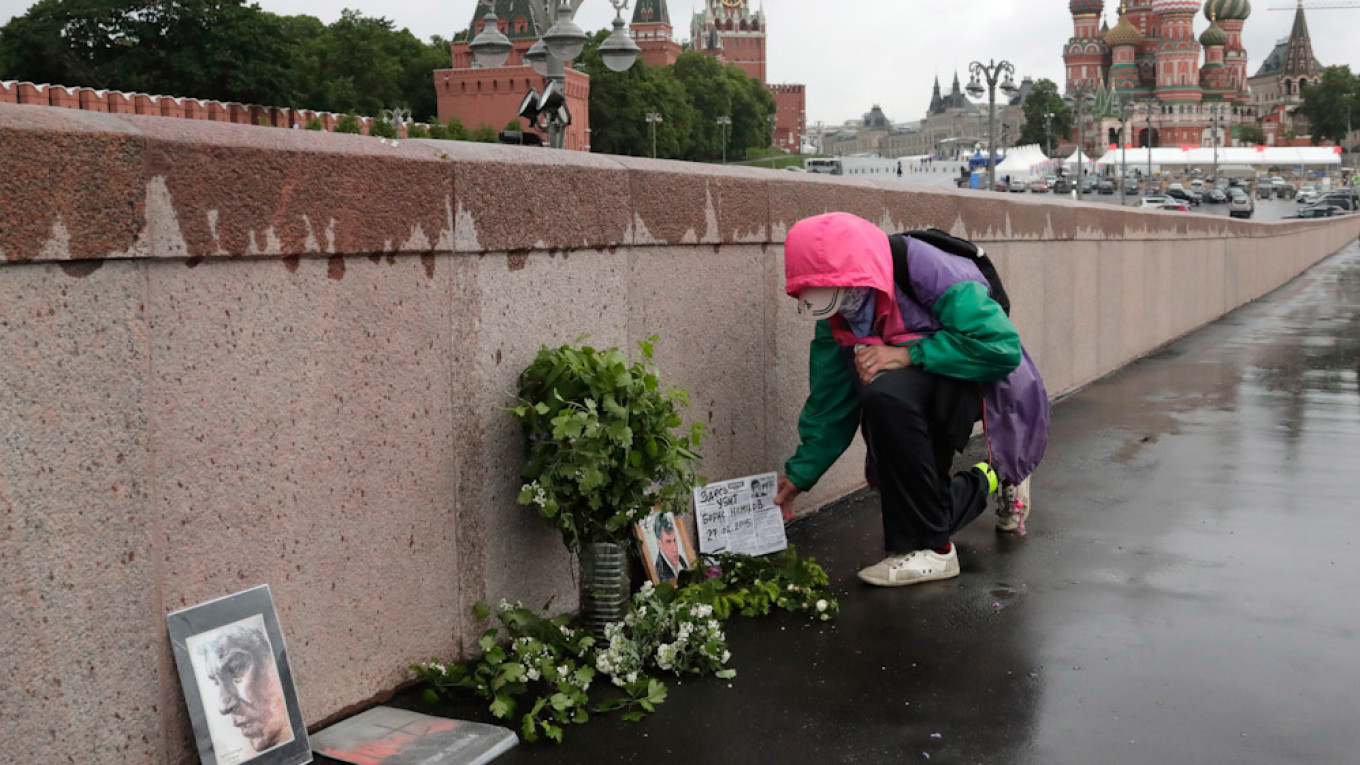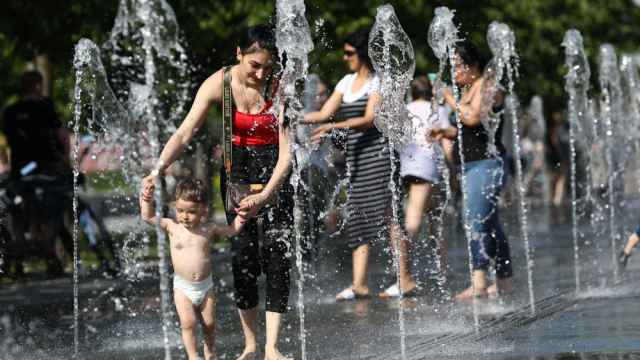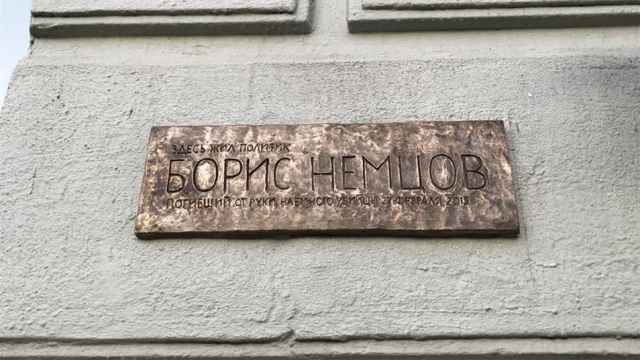Moscow police have blocked supporters of slain opposition politician Boris Nemtsov from laying flowers at the site of his death on a bridge steps away from the Kremlin.
Nemtsov’s supporters have maintained and guarded a makeshift memorial at the site where he was shot dead on Feb. 27, 2015, day and night for nearly six years. Organizers of the annual march in Nemtsov’s memory announced that this year’s event would be canceled due to the pandemic, calling on supporters to lay flowers at his memorial instead and asking city authorities not to interfere.
Over the long holiday weekend, police removed the memorial and detained several activists, citing a local order to keep the site clear, according to the Nemtsov Most (Nemtsov Bridge) volunteer organization.
In one video posted online, a woman can be seen talking to a police officer who refuses to name the exact order banning the memorial. The officer is then seen calling his superiors and asking whether he should detain the woman.
One of the volunteers maintaining the memorial, Grigory Simakov, told Novaya Gazeta that he saw two fellow volunteers get detained and that the site was cleared up and fenced off by the time they returned. Officers said they were acting under orders to keep the site clear but refused to show the order to the volunteers, he said.
When asked about the police order, Kremlin spokesman Dmitry Peskov said law enforcement officers’ actions at the site of Nemtsov’s death were "the city authorities’ prerogative."
Supporters resumed laying flowers at the site Tuesday amid police presence, according to photos and videos posted by Nemtsov Most.
Moscow City Hall called the police cleanup at the site a "misunderstanding" and promised to allow Nemtsov's supporters to lay flowers there on Feb. 27, the march organizers Dmitry Gudkov and Ilya Yashin told the Open Media news wesbite Wednesday.
A key figure of early reforms in post-Soviet Russia, Nemtsov had been an outspoken critic of President Vladimir Putin, calling his government increasingly undemocratic and corrupt. While five people were convicted for his murder in 2017, those who organized the killing have not yet been found.
A Message from The Moscow Times:
Dear readers,
We are facing unprecedented challenges. Russia's Prosecutor General's Office has designated The Moscow Times as an "undesirable" organization, criminalizing our work and putting our staff at risk of prosecution. This follows our earlier unjust labeling as a "foreign agent."
These actions are direct attempts to silence independent journalism in Russia. The authorities claim our work "discredits the decisions of the Russian leadership." We see things differently: we strive to provide accurate, unbiased reporting on Russia.
We, the journalists of The Moscow Times, refuse to be silenced. But to continue our work, we need your help.
Your support, no matter how small, makes a world of difference. If you can, please support us monthly starting from just $2. It's quick to set up, and every contribution makes a significant impact.
By supporting The Moscow Times, you're defending open, independent journalism in the face of repression. Thank you for standing with us.
Remind me later.






